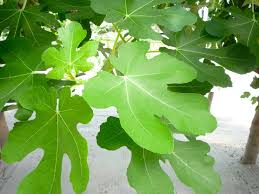Bird Feeders and Fig Leaves
I placed a bird feeder in the flower bed outside of my office window. I loved to watch the birds and squirrels eat and play on and around the feeder. Now that winter is here and the ground is covered with snow, all of their natural food is hidden under the white blanket. The fe eder has become a main source of food for the birds. It has made them dependent upon me. Now, rather that the bird feeder being a bit of entertainment, it has become a chore. I feel obligated to keep food stores up. It has become another responsibility. I must refill it on a regular basis, and purchasing the food is yet another expense in my budget. As I pondered what I had created with this experience it reminded me of the addictive cycle. It begins as something harmless and fun that makes us feel good. We like how it feels so we do it again and again, which turns into a habit and then an addiction. We need it to feel good about our lives. Just like the birds and the feeder, we become dependent upon it, and it takes our time and resources.
eder has become a main source of food for the birds. It has made them dependent upon me. Now, rather that the bird feeder being a bit of entertainment, it has become a chore. I feel obligated to keep food stores up. It has become another responsibility. I must refill it on a regular basis, and purchasing the food is yet another expense in my budget. As I pondered what I had created with this experience it reminded me of the addictive cycle. It begins as something harmless and fun that makes us feel good. We like how it feels so we do it again and again, which turns into a habit and then an addiction. We need it to feel good about our lives. Just like the birds and the feeder, we become dependent upon it, and it takes our time and resources.
My definition of addiction is anything I do on a repeated basis to feel better about myself and my life—even if the good feeling is short-lived. In the past, whenever I felt stressed, upset, tired, or even bored I would think, “What I need to feel better is cookie dough.” So, I would make chocolate chip cookies. By the time the first batch was out of the oven, I was sick from eating the dough and disappointed in myself for being a glutton again. But, for a short time, it did shift my focus from what was bothering me to the pleasure of the cookie dough in my mouth. Did I mention short-lived? Well, that is the thing with addiction. The thing we do to alter the way we are feeling is short lived. We must return to it continuously to feel better. We have become addicted that thing—whatever it may be.
I believe addiction is connected to a feeling of not measuring up, being ashamed of something we have done, or even who we are. I heard it once explained using the Garden of Eden story. After Adam and Eve partook of the forbidden fruit they were told by Satan that they should feel ashamed because they were naked. He told them to make aprons of fig leaves to cover themselves because of their nakedness, suggesting to them that being naked was something to be ashamed of.  Fig leaves are small, thereby meaning they would require a large number to cover themselves. Not only are they small, but they wilt and crumble requiring continual replacement. This is suggestive of the first addiction. Adam and Eve would have spent all of their time sewing new fig leaves onto their aprons to keep from feeling ashamed of their nakedness or their decision to partake of the fruit. After confessing their error to God he made coats of skins to clothe them.* This long-lasting covering let them move forward with their lives without constantly needing to relive the shame of their decision by gathering and stitching more fig leaves to their aprons.
Fig leaves are small, thereby meaning they would require a large number to cover themselves. Not only are they small, but they wilt and crumble requiring continual replacement. This is suggestive of the first addiction. Adam and Eve would have spent all of their time sewing new fig leaves onto their aprons to keep from feeling ashamed of their nakedness or their decision to partake of the fruit. After confessing their error to God he made coats of skins to clothe them.* This long-lasting covering let them move forward with their lives without constantly needing to relive the shame of their decision by gathering and stitching more fig leaves to their aprons.
Through the Atonement of Jesus Christ, our loving Heavenly Father has given us “skins” to cover all of our shame so that we do not have to turn to addiction to feel better about the fruits of our lives. These fruits are not just sins we have committed or omitted but things that we believe make us inadequate. It could be something someone said or did to us as a child, things the media tells us about how we should behave or look, or comparisons we internally make to other people. In fact, the possibilities are so numerable that we could spend an entire blog writing a list of the things we allow into our heads that make us feel ashamed. The point is that if we are willing to step out of our beliefs about our fruits and allow Christ to cover the things of our past we will not have a need to cover them with tiny, wilting, fig leaves.
For assistance in using this atonement we have been given many tools: Information we can study, ponder, and pray about Christ’s atonement and the importance of forgiveness; Journaling about our feelings and what we would like to eliminate from our lives; and finally, prayer with which we can unburden this feeling of shame to Christ. We must let him take that burden.
If this seems like more than you can do on your own, there are many great 12-step programs to give you support as you overcome the addiction that has you trapped. Emotion Healing is another excellent source of assistance in overcoming addiction. Rapid Eye Technology is the healing work I use to assist with overcoming addictions.
Take a few minutes to ponder about your life. Consider there may be some bird feeders that require your continuous attention. Is there something you do repeatedly that makes you feel better (temporarily)—even for a few minutes? It is my desire that we let go of that shame through whatever method is effective to us. It will give us more time to experience peace and joy in our lives instead of worrying about bird feeders and fig leaves.
*Taken from Genesis chapter 3

